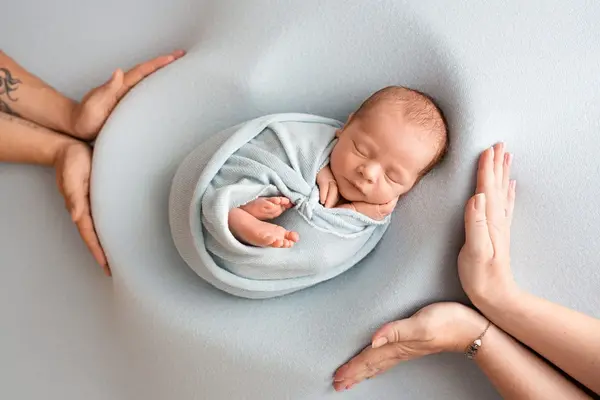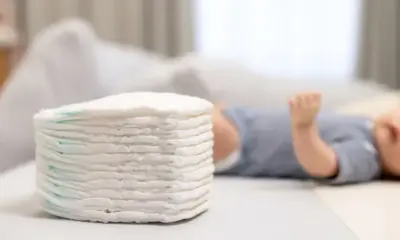Health & Wellness
Understanding Normal Breathing Patterns in Newborns

Understanding Normal Newborn Breathing Patterns
Newborns breathe differently than older children and adults. If your baby’s breathing seems fast or irregular, don’t panic. These breathing changes are often completely normal and part of healthy newborn breathing patterns. As you learn what’s typical for your baby, you’ll gain confidence in spotting true warning signs.
What Are Typical Newborn Breathing Patterns?
Newborns breathe mainly through their noses. Because their nasal passages are small, they often sound noisy when inhaling or exhaling. You may notice snorts, grunts, whistles, or even light snoring. Also, it’s common to see your baby breathing rapidly, then suddenly slowing down.
Periodic Breathing Is Normal
Newborns often experience periodic breathing. During sleep, they may breathe quickly for a few seconds, pause briefly, and then breathe again. These pauses usually last less than 10 seconds and should not concern you unless they are accompanied by other symptoms.
Even though this pattern may appear strange, it’s a normal part of early development. Your baby’s brain is still learning to regulate breathing.
Common Noises and What They Mean
Newborn breathing noises often result from nasal congestion. Babies can’t clear their noses on their own, so air passing through mucus can sound odd. Occasional sneezing helps them keep their noses clear. This behavior doesn’t mean your baby is sick or allergic to something.
Hiccups also occur frequently. These result from swallowed air or a sudden change in stomach temperature. Although annoying, they rarely signal a problem.
Fast Breathing in Newborns
It may seem like your baby is breathing too quickly. A normal newborn breathing rate is between 30 to 60 breaths per minute. It’s faster than adults, but it’s expected.
However, if breathing exceeds 60 breaths per minute consistently, it could be a sign of trouble. Always check for other symptoms before assuming the worst.
Warning Signs to Watch For
While most newborn breathing patterns are harmless, you should contact a healthcare provider if your baby:
- Turns blue around the lips, tongue, or face
- Breathes faster than 60 times per minute for extended periods
- Struggles to breathe or flares nostrils with each breath
- Appears unusually sleepy or lethargic
- Stops eating or has a weak sucking reflex
These signs may indicate respiratory distress and require immediate medical care.
When to Call 911 Immediately
Call emergency services if your baby:
- Turns entirely blue
- Has severe difficulty breathing
- Becomes limp or unresponsive
Prompt action in these cases is critical to avoid serious complications.
Newborn Sneezing and False Colds
Frequent sneezing doesn’t always mean illness. Instead, it’s often the body’s natural way to clear the nose. Still, if sneezing comes with coughing, fever, or watery eyes, your baby may have a cold.
Keep the nursery clean and use a nasal aspirator if needed. Saline drops can also help clear blocked noses. Always consult your pediatrician before trying new remedies.
What If Breathing Sounds Change Over Time?
Over time, you’ll recognize what’s normal for your baby. Sudden changes in sound, rate, or rhythm may mean something is wrong. Trust your instincts. You know your baby better than anyone.
Sometimes babies develop gastroesophageal reflux (GER), which may cause hiccups, coughing, or irritability during feeding. This can affect breathing patterns and is more common in premature babies. Fortunately, most outgrow it with time.
Final Thoughts on Breathing Concerns
Understanding newborn breathing patterns helps ease new parent worries. Learn what’s normal, observe your baby closely, and speak up when something feels off. With time, you’ll feel more secure in knowing when to act and when to relax.
Stay Informed and Confident
Want more parenting tips and baby health insights? Explore more news on this website for expert-backed guidance made just for new parents.












